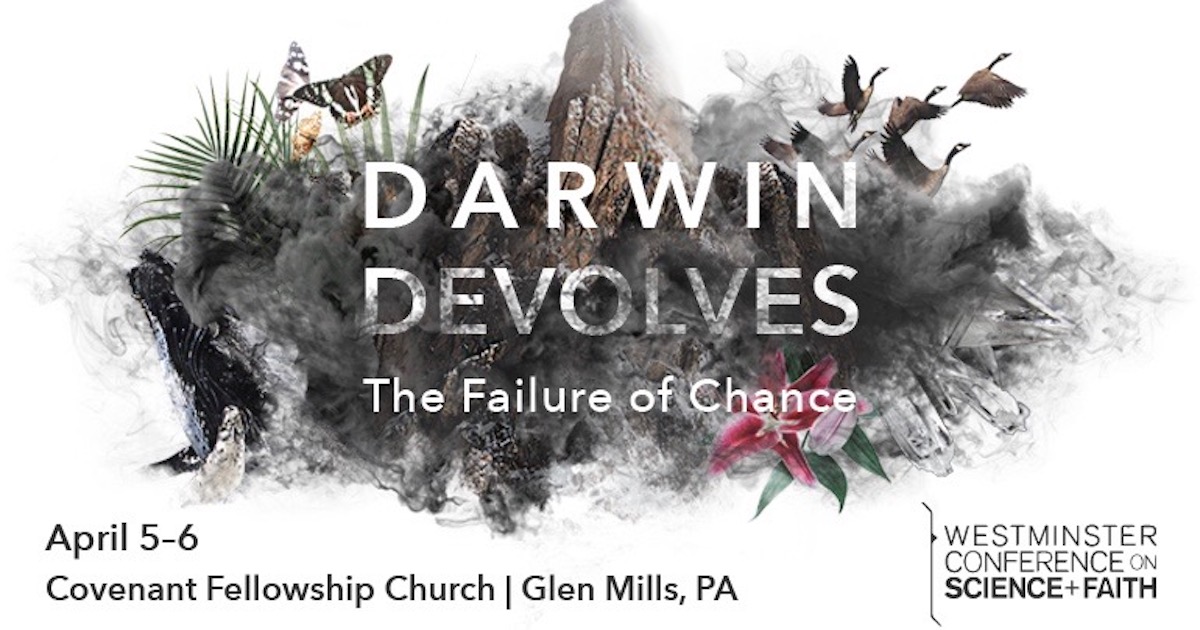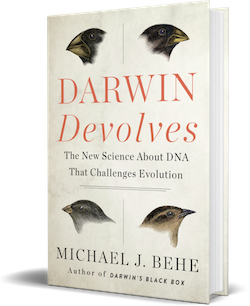 Faith & Science
Faith & Science
No Triangulation as Michael Behe Headlines 2019 Westminster Conference

Scientists have been lining up to debate with Michael Behe over his new book, Darwin Devolves: The New Science About DNA That Challenges Evolution, including the scientist most suitable to enter into a dialogue with him — National Academy of Sciences member Richard Lenski.

This is an impressive book launch, and you can be part of it. If you’re on the East Coast of the United States, your upcoming chance to meet, hear, and learn from Professor Behe is the Westminster Conference on Science & Faith, April 5 and 6, near Philadelphia, PA.
The theme this year: “Darwin Devolves: God, Design, and the Failure of Chance in Explaining Origins.” Behe will speak twice, both on Friday evening and Saturday morning. Other presenters from Discovery Institute include science historian Michael Keas on “God and the Rise of Modern Science” and “Myths about Science and Faith,” political scientist John West on “Design in C.S. Lewis,” physicist Brian Miller on “Design in Cosmology,” and biologist Ann Gauger on “Design in Genetics: The Chicken and Egg Problem.”
Find more information here, including about the youth track that makes the conference totally accessible to all. A tentative schedule is here. Buy tickets here.
From the event description:
Given enough time, can bacteria mutate into insects by chance? Can random mutations account for the existence of butterflies and whales and platypuses? What about the origin of the universe or the origin of man’s ability to reason? Come and hear scientists and scholars discuss the limitations of chance and the abundant testimonies to design, as they come to realization from physics to proteins.
Templeton News
To give you a sense of how important the perspective of these scholars is, as I’m writing this I’ve been reacquainting myself with Brazilian physicist Marcelo Gleiser. Professor Gleiser, who teaches at Dartmouth College, just won the year’s prestigious, $1.5 million Templeton Prize.
This is not bad news. He’s coming from a good place, and Gleiser has said semi-interesting things over the years. See, most recently:
Almost surprising, but not quite. In the news about Gleiser’s latest recognition, there’s a fair amount of “On the one hand, on the other hand” triangulation. From the culture of mainstream science, that’s about as much as you can expect.
An agnostic, he doesn’t believe in God — but refuses to write off the possibility of God’s existence completely.
“Atheism is inconsistent with the scientific method,” Gleiser told AFP Monday from Dartmouth College, the New Hampshire university where he has taught since 1991.
“Atheism is a belief in non-belief. So you categorically deny something you have no evidence against.”
“I’ll keep an open mind because I understand that human knowledge is limited,” he added.
One thing that recommends the speakers at the upcoming Westminster Conference is their lack of triangulation. Yes, it’s possible to be forthright on the huge questions about science and faith, while also being rational. The decision to include a youth track this year is a great idea because such forthrightness, in a context of reason, is something that young people urgently need to hear. We’ll look forward to seeing you in Pennsylvania!
